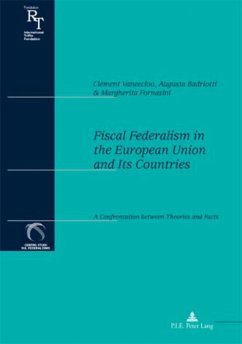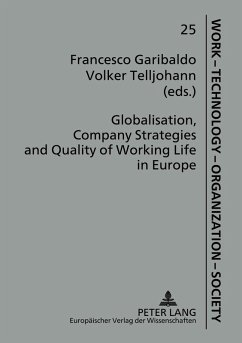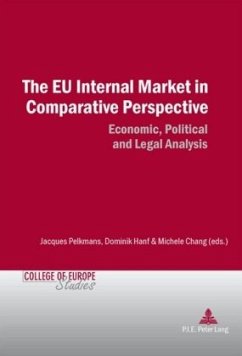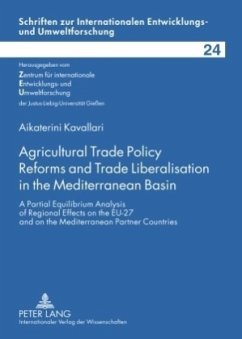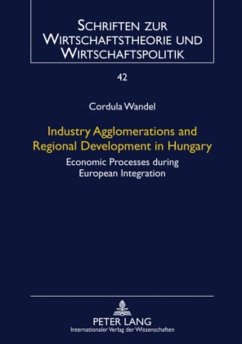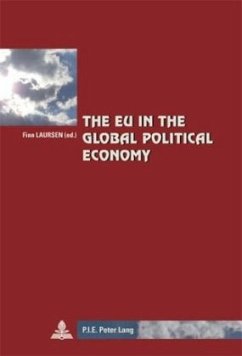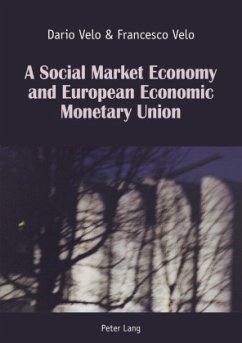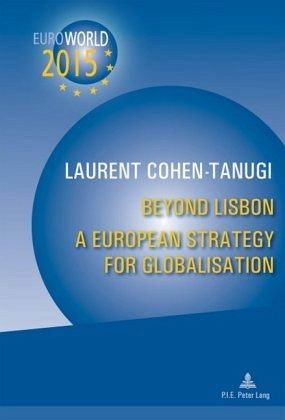
Beyond Lisbon: A European Strategy for Globalisation
With a Preface by Christine Lagarde and Xavier Bertrand
Versandkostenfrei!
Versandfertig in 6-10 Tagen
46,95 €
inkl. MwSt.

PAYBACK Punkte
0 °P sammeln!
"Beyond Lisbon: A European Strategy for Globalisation" is the product of six months' work and extensive Europewide consultations within the framework of a mission entrusted to Laurent Cohen-Tanugi by the French government ahead of France's presidency of the European Union.It provides the first assessment of the Lisbon strategy - generally presented as "the European response to globalisation" - established at the initiative of a Member State since its 2005 relaunch, as well as an analysis of the new challenges and opportunities facing the EU in the years to come.Against that background, the Coh...
"Beyond Lisbon: A European Strategy for Globalisation" is the product of six months' work and extensive Europewide consultations within the framework of a mission entrusted to Laurent Cohen-Tanugi by the French government ahead of France's presidency of the European Union.
It provides the first assessment of the Lisbon strategy - generally presented as "the European response to globalisation" - established at the initiative of a Member State since its 2005 relaunch, as well as an analysis of the new challenges and opportunities facing the EU in the years to come.
Against that background, the Cohen-Tanugi report demonstrates that in spite of its merits, the Lisbon strategy no longer represents a sufficient European response to globalisation not only because of its intrinsic shortcomings, but also because it constitutes solely an internal reform agenda designed to adapt the European economies and societies to globalisation without attempting to influence it. The report advocates a more ambitious strategy beyond 2010 that includes, along with a more effective innovation-based competitiveness agenda ("Lisbon Plus"), an external dimension based on common policies to help Europe shape globalisation and stay in the race in the 21 st century's global economy.
Following the mission's interim recommendation, the European Council of March 2008 has officially launched the reflection on a post-Lisbon globalisation strategy.
As a pioneer, substantive contribution to this exercise, the Cohen-Tanugi report has been met with significant interest throughout the EU since its delivery to the French government, and is likely to influence future EU policy in this critical area.
It provides the first assessment of the Lisbon strategy - generally presented as "the European response to globalisation" - established at the initiative of a Member State since its 2005 relaunch, as well as an analysis of the new challenges and opportunities facing the EU in the years to come.
Against that background, the Cohen-Tanugi report demonstrates that in spite of its merits, the Lisbon strategy no longer represents a sufficient European response to globalisation not only because of its intrinsic shortcomings, but also because it constitutes solely an internal reform agenda designed to adapt the European economies and societies to globalisation without attempting to influence it. The report advocates a more ambitious strategy beyond 2010 that includes, along with a more effective innovation-based competitiveness agenda ("Lisbon Plus"), an external dimension based on common policies to help Europe shape globalisation and stay in the race in the 21 st century's global economy.
Following the mission's interim recommendation, the European Council of March 2008 has officially launched the reflection on a post-Lisbon globalisation strategy.
As a pioneer, substantive contribution to this exercise, the Cohen-Tanugi report has been met with significant interest throughout the EU since its delivery to the French government, and is likely to influence future EU policy in this critical area.



